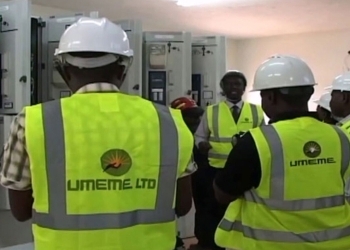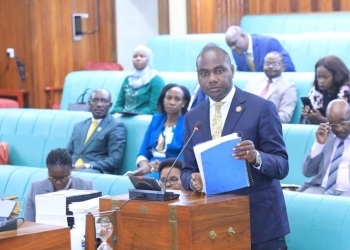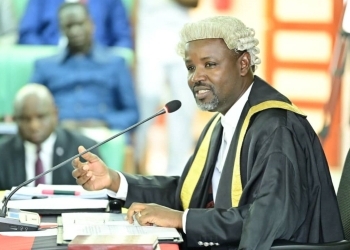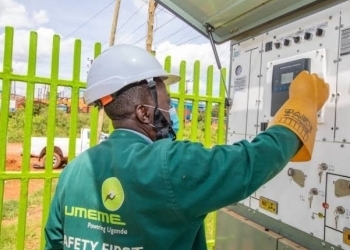
The Judiciary has revealed new bail guidelines aimed at promoting uniformity and consistency by courts while considering bail applications. The guidelines are drafted on a 24-page document.
The Chief Justice Alfonse Owiny-Dollo, while launching the guidelines on Wednesday at the Judiciary headquarters said the new guidelines will require courts to consider and dispose of bail applications within 30 days from receiving an application.
He said unlike previously when bails had no time frame for filing and determination, the new decisions will reduce the number of pre-trial imprisonment.
According to the new guidelines, when a suspect is remanded for an offense 60 days before his/her trial starts, the court (High Court and Magistrate's) shall grant bail on conditions that are deemed reasonable.
However, for capital offenses triable by the High Court, if an accused person has been on remand for six months before their case is committed for trial, the Magistrate shall immediately refer the file to the High Court for mandatory release on bail.

This changes earlier terms where a Magistrate would hear bail applications on capital offenses even six months after an accused has been on remand without being committed to facing trial.
On bail applications for Capital offenses like terrorism, cattle rustling, rape, aggravated defilement, embezzlement, corruption, and bribery of a member of a public body, among others, no bail will be granted in a Magistrate’s court save for exceptional conditions like a grave illness certified by a medical officer or inadequate treatment while on remand.
Also, an applicant will now be required to bring a certificate of no objection signed by the Director of Public Prosecutions and proof of infancy or advanced age.
The applicant is also required to present an introduction letter from their local council to one chairperson. Previously, this was only required from sureties.
Chief Justice Alfonse Owiny-Dollo faulted the Criminal Investigations Directorate of the police and the Office of the Director of Public Prosecutions for stalling disposal of cases through endless investigations and adjournments respectively.
He asked the Executive and Parliament to intervene and strengthen the Criminal Investigations Directorate and DPP so that evidence is collected in time to allow cases to be heard without delay, which will reduce the applications for bail.














